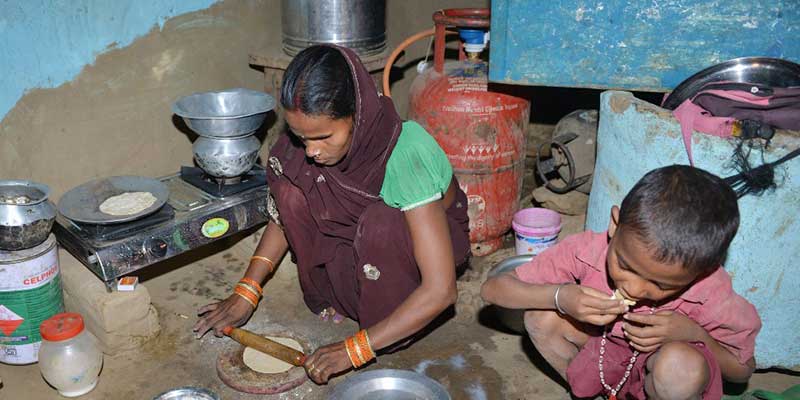- India
- Oct 01
Indian women spend 5 hours daily on domestic work, says NSO survey
According to a survey, women in India spend about 299 minutes (almost five hours) a day on unpaid domestic services. It is thrice as much as men, who spend 97 minutes in such activities. Unpaid domestic services include food preparation, cleaning, pet care and shopping for household members.
As much as 38.2 per cent of persons who were of the age of six years or above were engaged in employment and related activities in the country in 2019, according to the Time Use Survey of National Statistical Office (NSO).
What is Time Use Survey?
The NSO, which is a wing of ministry of statistics and programme implementation, has conducted the first Time Use Survey (TUS) in India during January to December 2019. The survey measures the participation rate and time spent on paid activities, care activities, unpaid activities, etc.
The primary objective of Time Use Survey is to measure participation of men and women in paid and unpaid activities. It is an important source of information on the time spent in unpaid caregiving activities, volunteer work, unpaid domestic service producing activities of the household members.
It also provides information on time spent on learning, socialising, leisure activities, self-care activities, etc, by the household members.
One distinguishing feature of Time Use Survey from other household surveys is that it can capture time disposition on different aspects of human activities, be it paid, unpaid or other activities with such details which is otherwise not possible in other surveys.
In recent years, Time Use Surveys have gained much impetus among policy makers and other data users for their usefulness in measuring various aspects of gender statistics.
How was the survey conducted?
This survey covered 1,38,799 households (rural: 82,897 and urban: 55,902). Information on time use was collected from each member of age 6 years and above of the selected households.
This survey enumerated 4,47,250 persons of age 6 years and above (rural: 2,73,195 and urban: 1,74,055).
In this survey data on time use was collected through a personal interview method. Information on time use was collected covering a period of 24 hours starting from 4am.
Average time spent in a day per participant for any activity is calculated by considering those who participated in the activity. Estimates of average time in a day in different activities is derived by considering only the participants in the activities are referred to as average time spent in a day per participant.
Highlights of the survey
• As much as 57.3 per cent males were engaged in employment and related activities while the proportion was 18.4 per cent for females in the country.
• In the rural areas, the proportion of women engaged in employment and related activities was higher at 19.2 per cent compared to 16.7 per cent in cities. The proportion of males engaged in gainful employment or related activities was higher in cities at 59.8 per cent in cities compared 56.1 per cent in rural areas.
• All persons above the age of six years who participated in the survey, were engaged in self-care and maintenance. People utilise 50.4 per cent of total time of 1,440 minutes in a day on self-care and maintenance followed by 11.4 per cent on employment and related activities.
• As much as 53.2 per cent were engaged in unpaid domestic services for household members. The proportion of females in the category was higher at 81.2 per cent compared to 26.1 per cent for males.
• The proportion of females engaged in unpaid domestic services for household members in rural areas was higher at 82.1 per cent compared to 79.2 per cent in cities.
• The proportion of males engaged in unpaid domestic services for household members in villages too was higher at 27.7 per cent compared to 22.6 per cent in cities. Overall, the percentage of persons engaged in unpaid domestic services for household members in villages was also higher at 54.6 per cent compared to 50.1 per cent.
• As much as 20.7 per cent people were engaged in unpaid caregiving services for household members in the country. The proportion of such men was 14 per cent while it was 27.6 per cent in case of women.
• The proportion of people who were engaged in production of goods for their own final use was 17.1 per cent in the country. The proportion of such males was 14.3 per cent while it was 20 per cent for women in the country.
• Just 2.4 per cent of people opted for unpaid volunteer, trainee and other unpaid work.
• As much as 91.3 per cent people went for socialising and communication, community participation and religious practice.
• The proportion of people who opted for culture, leisure, mass-media and sports practices was 86.9 per cent in the country.
Manorama Yearbook app is now available on Google Play Store and iOS App Store

